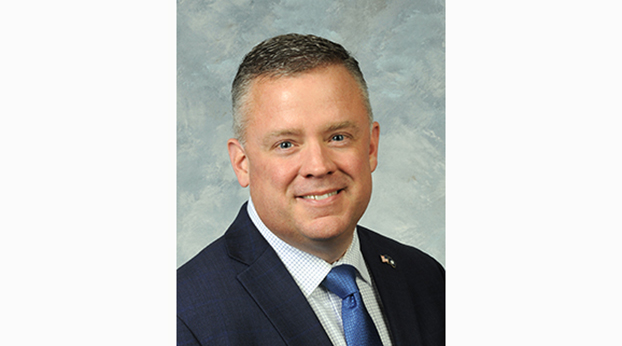Economic update: Recovery is tentative
Published 6:08 pm Thursday, August 12, 2021

- State Rep. Matt Lockett
|
Getting your Trinity Audio player ready...
|
We will be telling the story of when the world shut down amid growing cases of COVID-19 for generations to come, much like our great grandparents talked about the Spanish Flu and World War II. Particularly since almost overnight the state shut down schools, businesses, medical services, and nonprofit services. As a result, our state’s economy changed drastically.
Just one month after the first confirmed COVID case, Kentucky’s gross domestic product (GDP) – the total value of goods produced and services provided – fell 35 percent. This dealt an extreme blow to consumer confidence. According to the Kentucky Annual Economic Report, from January to April, Kentucky lost over 325,000 jobs or 16.7 percent of its total nonfarm employment. This is nearly three times the number of jobs lost during the Great Recession we experienced between December 2007 and June 2009.
While economic output improves, Kentucky continues to lag behind the national average in employment to population ratio and labor force participation. In fact, according to the Kentucky Chamber, the gap between Kentucky’s labor force participation rate and the national rate is almost a full percentage point wider than it was before the pandemic. The labor force participation rate is basically the number of people who could be working.
Almost overnight, hundreds of thousands of Kentuckians lost their jobs at the start of the pandemic. While some of these jobs have been recovered, we still have more than 90,000 open positions across sectors. A national trend that is evident in Kentucky also shows an uneven recovery across urban and rural areas. Urban areas have recovered far faster while rural areas continue to struggle. As we look at recovery, we must remain mindful that the policies we adopt promote recovery in all of Kentucky, from Ashland to Paducah and all points in between.
To everyone’s delight, the 2021 fiscal year ended with a $1.17 billion dollar revenue surplus. While we are relieved to have a historic surplus, those that see this as a green light to go on a spending spree are seriously misled. In the past year, the federal government has infused trillions of dollars into Kentucky’s economy through the three stimulus payments, enhanced unemployment benefits, and seven federal acts that appropriated money to and through state government.
We were intentionally cautious when we passed a continuation budget earlier this year, and as we invested the COVID-relief dollars into one time projects. I am also proud of the fact that once again we stipulated in the budget bill that any revenue surplus goes directly to the rainy day fund. This brings the rainy day fund balance to $1.92 billion dollars. When we talk about the rainy day fund, we think of it as the emergency fund and savings account for the state. As we continue to navigate the effects of the pandemic, it is pivotal that we are prepared for unexpected emergencies and future opportunities.
By investing more money in the rainy day fund, we increased our operating reserve, or the number of days the state can function without outside money. At the start of 2021, before we passed the 2021 budget bill, Kentucky had an operating reserve of just four days. After a historic $608.5 million dollar deposit during the 2021 legislative session, and another historic investment of $1.17 billion dollars, Kentucky now has an operating reserve of 30 days. This brings Kentucky up to par with surrounding states and stands to increase Kentucky’s credit score, which has long been bogged down by a pension crisis.
However, we already know that costs are creeping up. Just a few weeks ago we learned that the Kentucky Teacher’s Retirement System will need an additional $3 billion and we anticipate criminal justice and Medicaid costs to rise as well. While we do not want to use our rainy day fund to cover these costs, we may have no other option.
While we continue to navigate economic recovery amid a growing workforce development issue, we must remain mindful of the lingering effects of the pandemic. While the temptation to spend public money is strong, we must remember that this is the taxpayer’s hard-earned money. As your legislator, I am obligated to keep expenses low and continue to build a reserve for the inevitable day when crisis demands action.
As always, I can be reached here at home anytime, or through the toll-free message line in Frankfort at 1-800-372-7181. Feel free to contact me via email at Matt.Lockett@lrc.ky.gov. Also, visit the legislature’s website at legislature.ky.gov.
Matt Lockett is the 39th District Kentucky State Representative. His district includes parts of Jessamine and Fayette counties.





